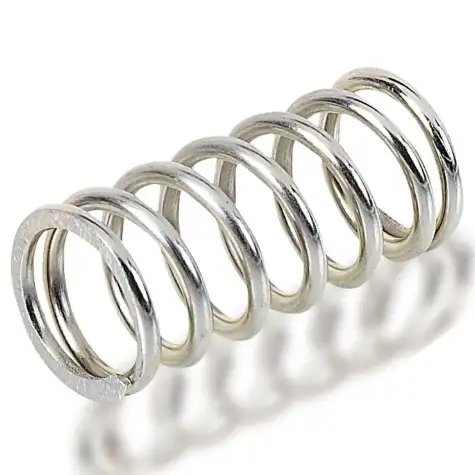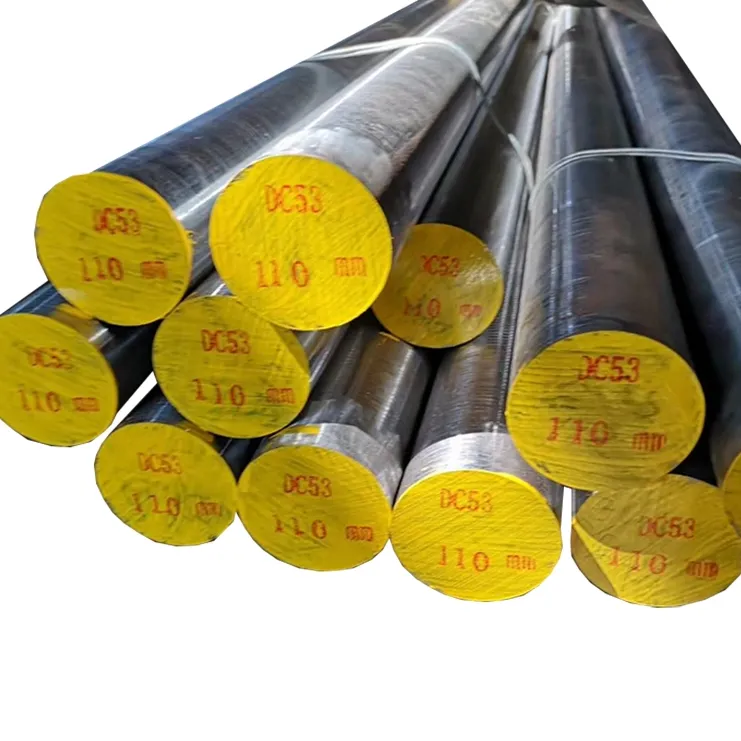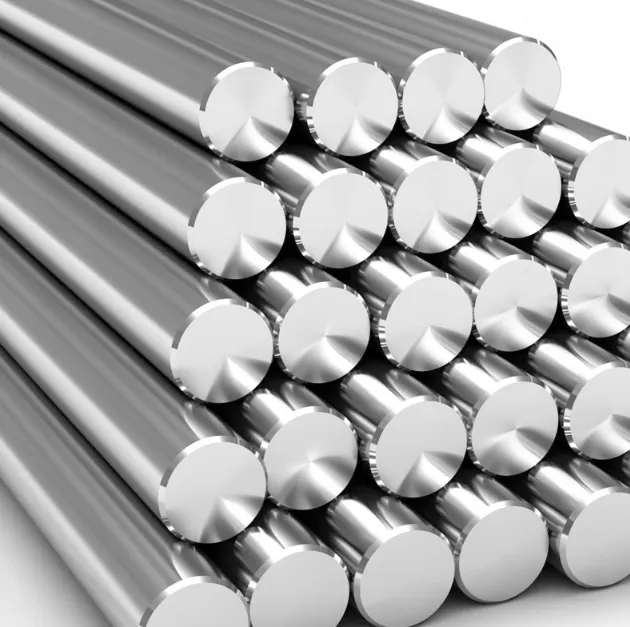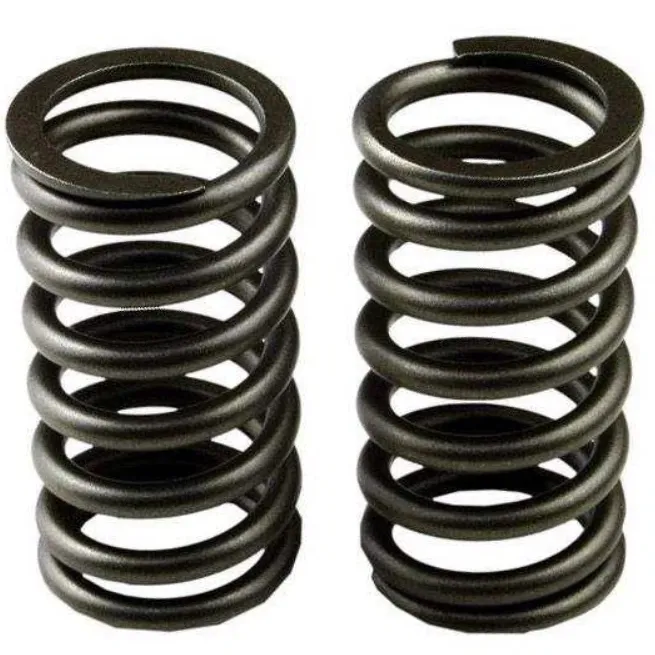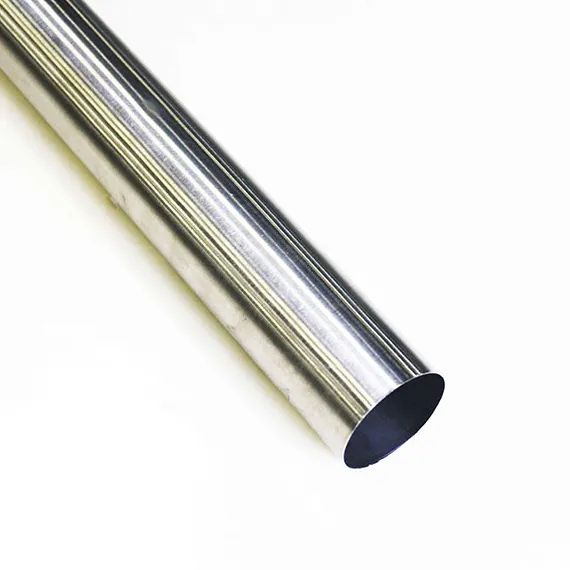For demanding environments that require sustained load, minimal relaxation and corrosion resistance at elevated temperatures, nickel-based spring alloys — notably Inconel® X-750, Inconel® 718 and Inconel® 625 — offer the best combination of creep strength, oxidation resistance and fatigue life. When specifying high-temperature springs, choose the alloy and heat-treatment that match the maximum service temperature, cyclic loading and corrosive media; MWAlloys supplies factory-priced, ready-stocked high-temperature nickel-alloy springs from China with rapid dispatch to global buyers.
What are high-temperature nickel-alloy springs
High-temperature nickel-alloy springs are elastic components manufactured from nickel-based alloys engineered to retain mechanical strength, resist relaxation (permanent set) and resist oxidation/corrosion when exposed to sustained temperatures well above the practical limits of common stainless steels or carbon spring steels. These springs include compression, extension, torsion, and special formed wire elements that must operate reliably in elevated-temperature systems such as gas turbines, aerospace actuators, oil & gas valves, petrochemical heaters and nuclear components. Industry practice selects materials that combine creep resistance, oxidation protection and fatigue performance for the particular duty cycle.
Why nickel alloys are preferred at elevated temperature
Nickel-base superalloys retain high strength at a large fraction of their melting point, develop protective oxide films that slow further surface attack, and tolerate thermal cycling better than most steels. Key advantages important to spring design are:
-
High yield and tensile strength at elevated temperatures (reduces set and creep).
-
Excellent oxidation resistance — long life in air, combustion gases or steam.
-
Good corrosion resistance in many acidic or chloride environments (depending on alloy).
-
Stable metallurgical response to age-hardening treatments that help springs hold preload and resist relaxation.
Principal alloys used for high-temperature springs
Below are alloys commonly used for springs rated for elevated temperature service, with short selection notes.
-
Inconel® X-750 (UNS N07750) — precipitation-hardenable nickel-chromium-aluminum-titanium alloy, designed for excellent relaxation resistance. Widely chosen where spring preload must be held up to about 700°C (≈1300°F). Good general choice for turbine and aerospace springs.
-
Inconel® 718 (UNS N07718) — age-hardening nickel-chromium-niobium-titanium alloy with very high tensile strength after precipitation treatment; often used where static strength and fatigue resistance at elevated temperature are required (effective up to ~550°C under many conditions). Requires careful aging to develop full properties.
-
Inconel® 625 (UNS N06625) — nickel-chromium-molybdenum alloy offering outstanding corrosion resistance plus high-temperature performance; selected where both high temp strength and aggressive corrosion resistance (e.g., marine/chemical) are needed.
-
Nimonic family (e.g., Nimonic 90) — nickel-chromium-titanium alloys engineered for creep resistance in turbine environments.
-
Haynes and Hastelloy grades — selected for specific high-temperature corrosion scenarios (combustion, corrosive process gases).
-
Incoloy (e.g., 800, 825) — iron-nickel-chromium based alloys that handle moderate high temperatures with good oxidation and corrosion resistance; sometimes used where cost or ductility considerations dominate.
Selection principle: base the alloy choice on the maximum continuous temperature, whether the spring sees steady or cyclic loading, and the chemical environment. For very high creep/relaxation resistance choose X-750 or Nimonic; for combined corrosion and heat exposure choose 625; for highest static strength after aging choose 718.
Mechanical performance & temperature guidance (standards & notes)
Important, load-bearing facts buyers use to specify springs:
-
Service temperature ranges (typical): Inconel X-750 can retain high strength and relaxation resistance to roughly 700°C (≈1300°F) in many forms; manufacturers routinely list X-750 springs for operation into that zone. Inconel 718 is commonly used up to ~550–600°C (≈1000–1100°F) depending on load and heat treatment. These are guideline bands; final selection must consider stress level and cyclic exposure.
-
Heat treatment matters: Precipitation-hardening (aging) schedules develop the high strength in alloys such as 718 and X-750; improper heat treatment severely reduces fatigue life and relaxation resistance. Standards such as AMS and material supplier technical bulletins define solution + aging cycles for wire and bar products.
-
Creep and relaxation: At elevated temperature, time-dependent deformation (creep) and stress relaxation determine long-term load retention. Spring designers use empirical relaxation curves and vendor relaxation data plotted vs temperature and time (available in alloy technical bulletins).
-
Typical mechanical property examples (post-treatment): Alloy 718 can show room-temperature ultimate tensile strengths in the range of ~1500 MPa (≈220 ksi) after appropriate aging; these high values explain 718’s use where high static and cyclic loads coincide.
Design & manufacturing practices for reliable high-temperature springs
Manufacturing springs in nickel alloys combines traditional springmaking skills plus alloy-specific process controls:
-
Wire selection: Use certified spring wire in the correct condition (e.g., cold-reduced and solution treated for 718 per AMS 5962 when available). Certified lots, traceable melt records, and limited impurities are essential for fatigue life and relaxation tests.
-
Forming: Cold coiling is typical for small-section wire; large coils or complex shapes may require controlled intermediate anneals to avoid cracking. Nickel alloys have higher strain-hardening rates than common steels, so tooling and process parameters must be tuned.
-
Heat treatment: Correct solution-treat + age schedule (or precipitation hardening) must be applied after forming to achieve design strength and to stabilize springs against relaxation. Some alloys require special aging profiles to minimize grain boundary precipitates that reduce high-temp stability.
-
Surface finishing & coatings: Shot peening improves fatigue life. Protective coatings (e.g., aluminide, proprietary high-temp platings) can slow oxidation when service is borderline for the alloy. Keep in mind coating compatibility with operating media.
-
Quality control: Typical assessments include tensile, hardness, relaxation tests, salt-spray or corrosion testing (if required), and dimensional checks. For critical aerospace parts, material certifications and lot testing to AMS/ASTM/MIL specifications are mandatory.
Corrosion & oxidation: environmental compatibility
Nickel alloys form protective oxide films that limit further oxidation at high temperatures. However:
-
In oxidizing atmospheres (air, combustion), many Inconel alloys maintain a stable surface layer and resist scale spallation better than steels.
-
In sulfur-bearing, carburizing or molten salt environments, corrosion mechanisms differ and alloy selection must be confirmed via vendor corrosion data and lab testing.
-
Holding springs in steam or chloride-rich process fluids can cause stress-corrosion cracking in some alloys (careful selection and post-fabrication treatments reduce risk).
Typical industries & example use cases
High-temperature nickel-alloy springs appear in:
-
Aerospace — turbine engine control springs, valve springs, actuator return springs (X-750, 718).
-
Power generation — gas turbine and waste-heat recovery valve and control springs.
-
Oil & gas / petrochemical — downhole tools, high-temp valve springs, packer springs (625 and selected Incoloy grades when corrosion and heat combine).
-
Chemical processing — springs in high-temperature reactors, heaters, and control valves where corrosion and temperature co-exist.
-
Industrial furnaces & kilns — track springs and element supports where continuous high temperatures are present (special high-temperature nickel alloys or superalloys).
MWAlloys: product offering, supply advantages and commercial terms
MWAlloys is a specialized supplier focused on nickel-alloy spring components for industrial and OEM customers. Key commercial features we provide:
-
Factory pricing (100% factory outlet): MWAlloys operates direct from Chinese production facilities and sells springs with mill traceability, reducing middle-man margins. This produces competitive unit pricing for both prototypes and production lots.
-
Stock and fast delivery: We maintain stock of common spring alloys and typical wire diameters and can ship small sample orders within days and production runs on a fast timeline. Expedited shipping programs are available for urgent spares.
-
Technical support: Our engineering team helps choose alloy/heat treatment and prepares spring stress/relaxation forecasts for the duty cycle. We provide material certificates (MTRs), process control documentation and optional third-party test reports.
-
Custom capability: From small precision wire springs to large coil springs and formed wire assemblies, MWAlloys can produce to AMS/ASTM or customer specifications.
-
Quality: We use supplier-approved melt sources, certified heat treatments, and batch traceability. Compliance documentation can be provided for regulated sectors.
Global 2025 price table
Notes on price table: alloy material prices vary with raw nickel cost, processing premiums, certification, and order quantity. The bands below are indicative market ranges for 2025 finished spring material (per kg, USD), compiled from recent industry price bulletins and supplier lists; final quote requires RFQ with required form/finish and certification.
| Alloy / Product | Typical max service range (guide) | Indicative price band (USD/kg, 2025) | Common applications |
|---|---|---|---|
| Inconel® X-750 (spring wire / small coils) | up to ~700°C (1300°F) | $55 – $110 / kg (finished spring wire/formed spring) | Aerospace springs, turbine controls |
| Inconel® 718 (cold-reduced wire, precipitation hardened) | up to ~550–600°C | $60 – $130 / kg (depends on finish & treatment) | |
| Inconel® 625 (wire, bar) | high temp + aggressive corrosion | $50 – $120 / kg (higher for certified alloy wire) | |
| Incoloy 800/825 (spring wire variants) | moderate high temp, corrosive service | $30 – $70 / kg | Chemical plant springs. |
| Nickel 200 / Ni201 (simple nickel wire) | moderate temp, corrosion resistant | $12 – $25 / kg (sheet/wire) — raw nickel content sensitive | |
| Raw nickel reference (LME spot, early 2025) | N/A | ~$15–16 / kg (LME spot reference used to index alloys) |
How MWAlloys prices: Our factory-direct pricing often lands near the low-to-mid point of the bands for volume orders because we avoid distribution markups. Final price depends on wire diameter, finish, certification and required heat treatment.
Comparison
| Criteria | Inconel X-750 | Inconel 718 | Inconel 625 | Incoloy 800/825 |
|---|---|---|---|---|
| Best for relaxation resistance | Excellent | Good | Moderate | Moderate |
| Peak continuous temp (practical) | ~700°C | ~550–600°C | ~650°C | ~600°C |
| Corrosion resistance (general) | Good | Good | Excellent | Good |
| Heat treatment complexity | High (precipitation) | High (ages to strength) | Moderate | Moderate |
| Typical sectors | Aerospace, turbines | High strength assemblies | Marine, chemical | Chemical, heat exchangers |
Test methods, standards and authoritative norms
Critical reference points when specifying springs:
-
AMS / ASTM / ISO specifications for alloy forms and wire (e.g., AMS 5962 for 718 bar/wire forms, AMS 5698/5699 for X-750 wire lists) are commonly referenced in aerospace and defense procurement.
-
Relaxation testing: measure residual stress after elevated-temperature hold; vendors should supply relaxation vs time data to buyer.
-
Fatigue and load-versus-deflection verification: perform to customer cycles and temperatures where possible.
-
Salt spray, SCC screening or steam testing for corrosive services when needed.
-
Material Test Reports (MTRs) and traceable heat numbers must accompany certified orders.
Frequently Asked Questions
-
Which nickel alloy is “best” for springs used near 650°C?
For high relaxation resistance approaching 650–700°C, Inconel X-750 or Nimonic variants are commonly selected — confirm expected stress level and cycle count with vendor data. -
Can Inconel springs be heat-treated after forming?
Yes — most nickel spring alloys require a final solution + aging treatment to develop peak mechanical properties and relaxation resistance. The precise schedule depends on the alloy and must follow supplier recommendations. -
Do nickel springs corrode in marine environments?
Some nickel alloys (e.g., 625) have excellent corrosion resistance in seawater; others may need protective coatings or alternative alloys. Specify environment and duration for a correct alloy choice. -
How much more expensive are nickel springs vs stainless steel?
Material and processing premiums mean nickel springs typically cost several times more per kg than common stainless spring steels; overall cost depends on certification and processing. See price table for 2025 bands. -
Are there size limits for coiling nickel spring wire?
Nickel alloys are produced in a wide range of diameters, but very fine or very large diameters may require special tooling and process control — discuss feasibility with MWAlloys engineering. -
What documentation will I get with an MWAlloys order?
Material certificates (MTRs), heat-number traceability, process records on heat treatment, and optional third-party or in-house test reports on request. -
How do you test relaxation for springs?
Relaxation tests load a spring to specified deflection or stress, hold at temperature for a defined time, then measure loss of stress or displacement. Vendor curves can be supplied. -
Can springs be shot-peened or coated?
Yes — shot peening is recommended to raise fatigue life; coatings are possible but must be compatible with operating temperatures. -
Lead times for prototype vs production?
MWAlloys typically ships sample/prototype items within days if material is in stock; production lead time depends on quantity, certification and whether special heat treatment is required. -
Is alloy selection reversible after ordering?
Changing alloy late in a program may require requalification — we advise confirming alloy and heat treatment before final production to avoid rework.
Practical selection checklist
-
Confirm maximum continuous temperature and short-term peaks.
-
Define static stress and cyclic amplitude (number of cycles).
-
Specify corrosive media (chlorides, H2S, steam, acid).
-
State certification requirements (AMS, ASTM, ISO, MIL-spec).
-
Ask for relaxation vs time curves at intended temperature from supplier.
-
Determine surface treatment (shot peen, plating) and inspection tests.
-
Include required documentation (MTRs, test reports).
Closing summary
High-temperature nickel-alloy springs are engineered products that require precise alloy selection, controlled forming and specified heat treatment to deliver long life with minimal relaxation and safe operation in demanding environments. MWAlloys supplies certified, factory-priced spring components from China, with fast stock-based delivery and engineering support for alloy selection, testing and procurement. To get a tailored quotation, please provide operating temperature, load/deflection requirements, desired life in cycles/hours, and any environmental constraints — MWAlloys will return a technical recommendation and a factory quote.

